Today, we hang out with a Russian opposition leader, update the top national COVID vaccine rollouts, and remember a short-lived revolution in Cairo.
Signal survey! If you haven't done so, please do take our subscriber survey. The deal is simple: you tell us what you like to read about so we can... write more of it. Thanks for your time!
Putin’s nemesis
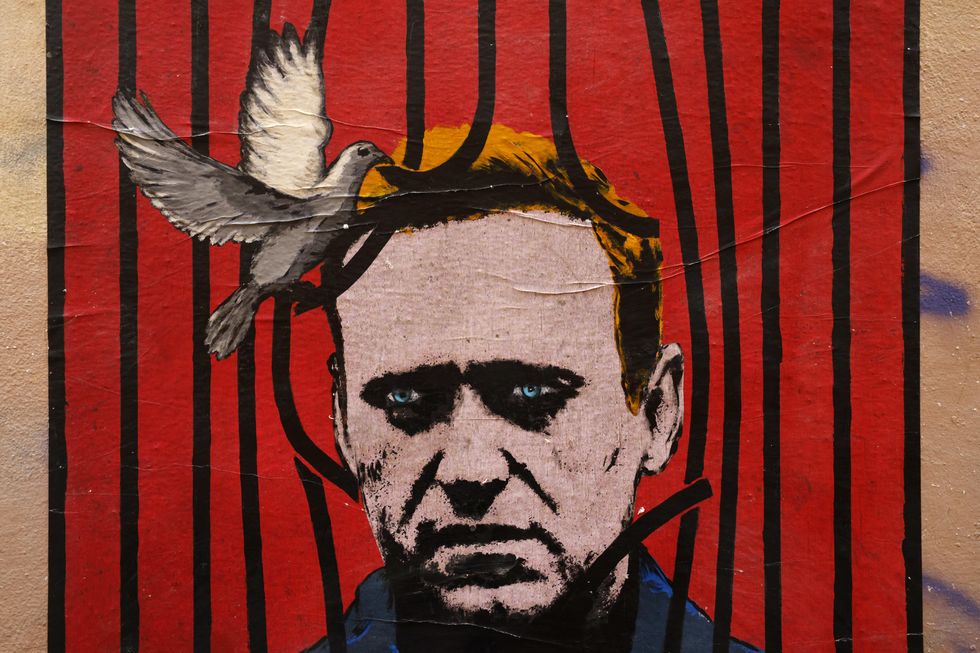 Carlos Santamaria
Carlos SantamariaOver the weekend, some 40,000 Russians braved subzero temperatures to turn out in the streets in support of imprisoned Kremlin critic Alexei Navalny. More than 3,000 protesters were arrested, and Navalny called on his followers to prepare for more action in the coming weeks.
But just who is Alexei Navalny, and how significant is the threat that he may pose to Vladimir Putin's stranglehold on power in Russia?
A longtime thorn in Putin's side. Navalny, 44, is a prominent and charismatic anti-corruption crusader with a penchant for social media. He made his mark on Russian politics ten years ago, when he led tens of thousands of people in protests that began over election fraud and corruption but morphed into a broader outcry against Putin.
Since then he has remained a key player in the opposition to the current regime, often publishing exposés detailing corruption among elites close to Putin or the president himself. In 2013, he came in second in the race for mayor of Moscow, getting 27 percent of the vote. A year later he was convicted of graft in a trial viewed as politically motivated, and in 2017 he was briefly detained for protesting against the astonishing wealth of then-PM Dmitri Medvedev.
Last year Navalny was poisoned with a rare Soviet-era nerve agent in an assassination attempt that he and independent observers say was carried out by state security agents. After recovering in Germany, he returned to Russia this week — knowing he'd be arrested upon arrival.
Popular… for some. Navalny has struggled in all his attempts to run for elected office because his support is strongest among urban and younger Russians. Overall, only about 20 percent of the wider population agree with him, and 50 percent oppose his actions. What's more, half of Russians believe his poisoning was either a hoax or that it was carried out by the West.
So, why does he worry Putin? For one thing, Navalny is laser-focused on an issue that affects all Russians — corruption — and has a knack for getting his message out. That can help him broaden his base beyond the the laptop-toting "creative" urban class, and potentially unify Russians from all walks of life across 11 time zones.
As for his other politics, Navalny often takes positions that many in the West would characterize as nationalistic, yet are quite popular in Russia. He defended Russia's invasion of Georgia in 2008, the illegal annexation of Crimea in 2014, and in the past made disparaging comments about Central Asian migrants.
Is this time different? The 2011 protests petered out largely because Navalny then lacked strong support outside of Moscow and St. Petersburg. However, in recent years anti-Putin rallies have increasingly taken place in a host of mid-sized cities, including in remote parts of Siberia.
With Putin — now in his 21st year in power — showing approval ratings near all-time lows (by his own standards) ahead of Duma elections this fall, Navalny has a window of opportunity to raise the stakes. After all, Putin has cleared the way to stay in power until 2036 if he wants.
But let's keep things in perspective. While Navalny's level of support is rising, it's not (yet) enough to pose an existential threat for Putin. Russia's president is not as popular as he once was, but still enjoys an approval rating of more than 60 percent, controls a massive and loyal security apparatus, and has brought the entire business elite to heel.
Navalny's challenge is to put enough people on the streets to scare Putin's cronies and security men into thinking twice about continuing to support him — no easy feat in a country where political apathy is widespread, and fear of 1990s-style instability is real.
The next big test for Navalny will come at Sunday's protest. The turnout will determine his immediate fate as Putin's nemesis.The Graphic Truth
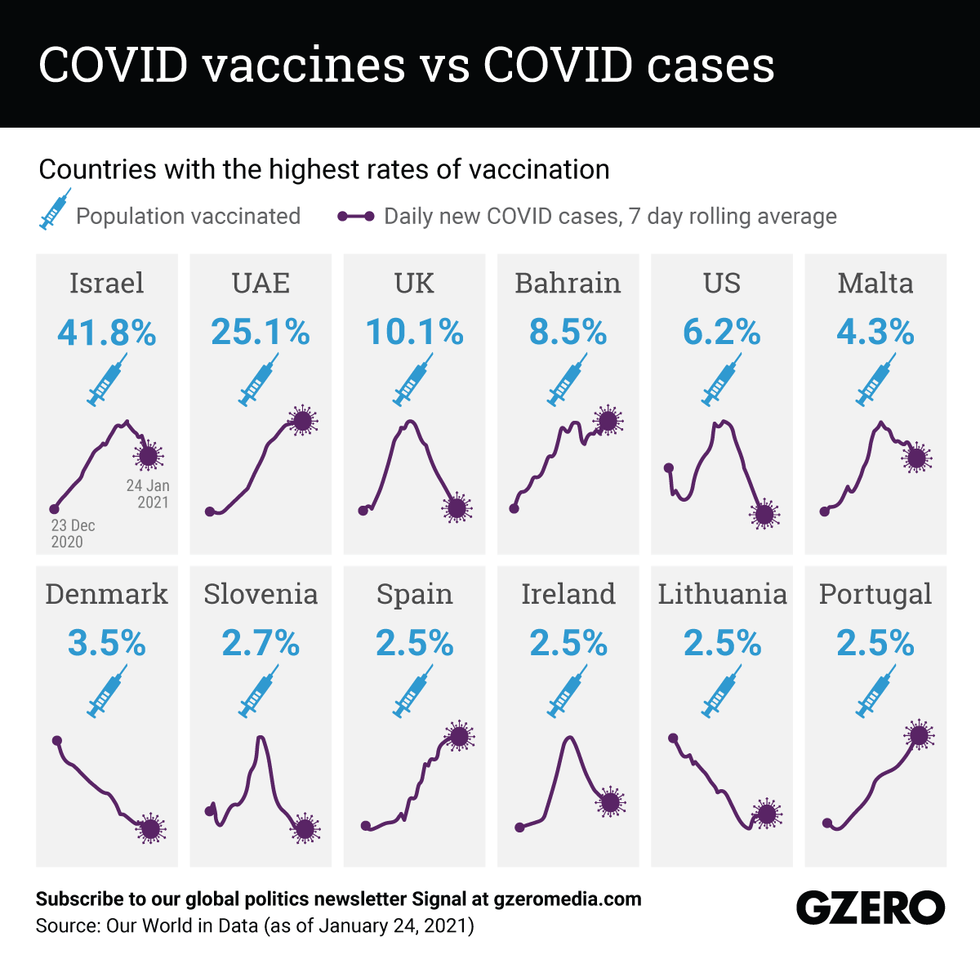 Gabrielle Debinski
Gabrielle DebinskiEven as vaccines roll out around the world, COVID-19 is continuing to spread like wildfire in many places, dashing hopes of a return to normal life any time soon. Some countries, like Israel and the UK for instance, have been praised for their inoculation drives, while still recording a high number of new cases. It's clear that while inoculations are cause for hope, the pace of rollouts cannot keep up with the fast-moving virus. Here's a look at the countries that have vaccinated the largest percentages of their populations so far – and a snapshot of their daily COVID caseloads (7-day rolling average) in recent weeks.
Quick Take: Pro-Navalny Russian protests make Putin defensive
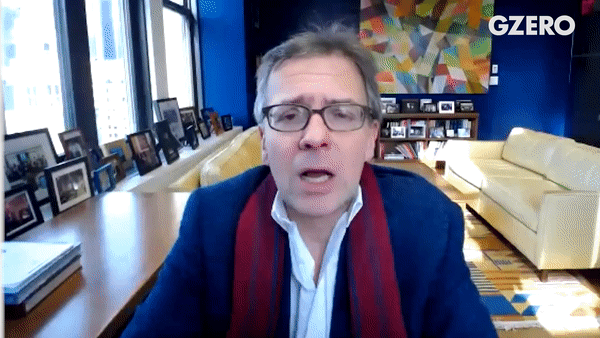 Ian Bremmer Quick Take - AMLO contracts COVID and Navalny inspires protest
Ian Bremmer Quick Take - AMLO contracts COVID and Navalny inspires protestAnalyzing the recent jailing of Russian opposition leader Alexei Navalny, and widespread protests across Russia this past weekend, Ian Bremmer says that one of the most interesting takeaways is the Kremlin's reaction. Putin "clearly sees Navalny as a threat," Bremmer says in this week's Quick Take. Watch the clip here.
What We're Watching: Tahrir Square 10 years on, Italy's PM resigns, AMLO gets COVID, India-China border row
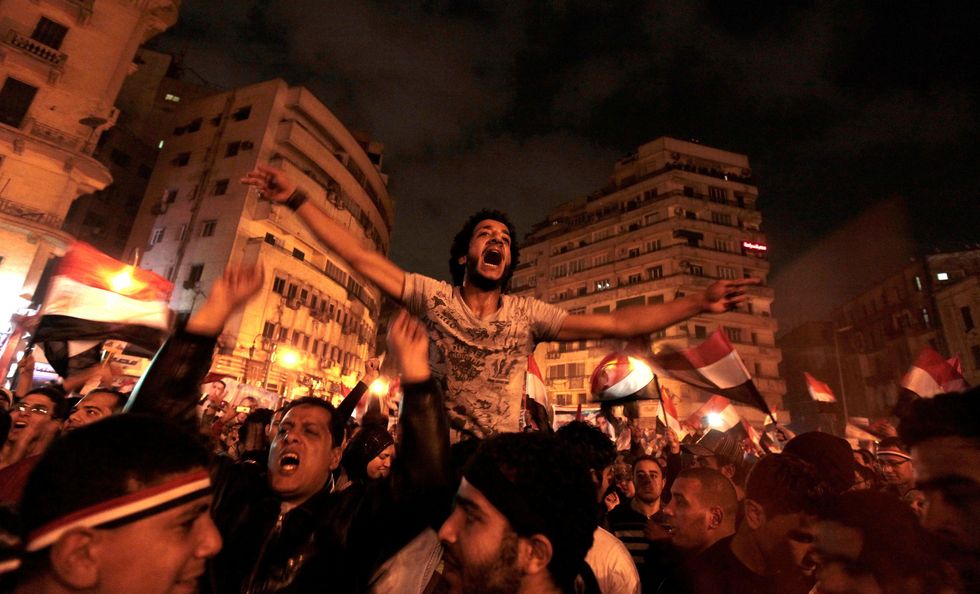 Gabrielle Debinski
Gabrielle DebinskiTahrir Square — a decade on: This week marks a decade since mass protests in Cairo's Tahrir Square sparked a revolution that toppled Egypt's longtime strongman Hosni Mubarak as part of the Arab Spring. But ten years on, Egypt's brief experiment with democracy has long since been undermined by current President Abdel Fattah el-Sisi. El-Sisi, a former General who in 2013 capitalized on fresh street protests to oust the country's first democratically-elected president, has quashed dissent and crushed political opposition. Egypt is now one of the most dangerous countries in the world to be a journalist, and has one of the lowest internet freedom rankings. As if to make the point that Tahrir Square — long the site of anti-government protests — is now his, el-Sisi recently oversaw a $6 million renovation that dressed up the place with the trappings of a European-style monumental plaza, covering over most of the open spaces where hundreds of thousands once camped out and defied the regime. Ten years after the Arab Spring bloomed in Cairo, Egypt may actually be less free than it was on January 24, 2011.
AMLO-19: Mexican president Andres Manuel Lopez Obrador announced Sunday he had tested positive for COVID-19, capping a dark few days in which the country saw its highest weekly death toll yet from the virus. From the beginning of the pandemic, AMLO, as the left-wing populist is known, has resisted taking broad lockdown measures, citing his concern for the country's massive population of working poor who can't simply work from home. And despite the fourth highest global COVID death toll, AMLO has remained broadly popular. The 67-year old former smoker tweeted that his symptoms are mild and he's still on the job, but if things do take a grimmer turn, the situation could get rocky fast — AMLO is a towering figure in Mexico, with no clear and viable successor in sight. What's more, his ruling Morena party faces tough mid-term elections this year, and they will need him hale and hearty to make sure they retain their grip on Congress.
PM Conte resigns in Italy: After weeks of political dysfunction, in which Italy's fragile coalition government narrowly survived a confidence vote in the Senate just last week, Prime Minister Giuseppe Conte now says he will resign, pushing the country into political chaos. The timing couldn't be worse: Italians are now left without a stable government amid a massive effort to rollout a COVID-19 vaccine and revive the pandemic-battered economy (Italy's GDP shrunk by a whopping 10 percent in 2020). There are a few potential scenarios going forward: One is that Conte could remain prime minister if the president appoints him to head a (weak and fractious) new coalition. Another option is that former prime minister Matteo Renzi's party — which triggered the latest upheavals by withdrawing from the government in a dispute over how to spend EU coronavirus relief funds — could return to government, with a different prime minister. Lastly, new elections could be called. One player who might particularly like to see that outcome is former interior minister Matteo Salvini, whose far-right Lega party is currently leading in polls.
India and China in another high border skirmish: The two Asian giants clashed again over their ill-defined frontier in the Himalayas, with Indian sources reporting that its troops repulsed a Chinese patrol that had crossed into Indian territory. The situation along the strategically important high altitude border has been unresolved for decades, but things have gotten more tense again over the past year. Last June a melee of sticks and fisticuffs left dozens dead, and last fall the two sides exchanged fire. With strongly nationalistic leaders in charge of both nations, the border has become a flashpoint in a broader increase of India-China tensions as the world's two most populous countries vie for supremacy in Asia.
Hard Numbers: Dutch riot, Israel's COVID balancing act, Estonia's new PM, Germans heart Biden
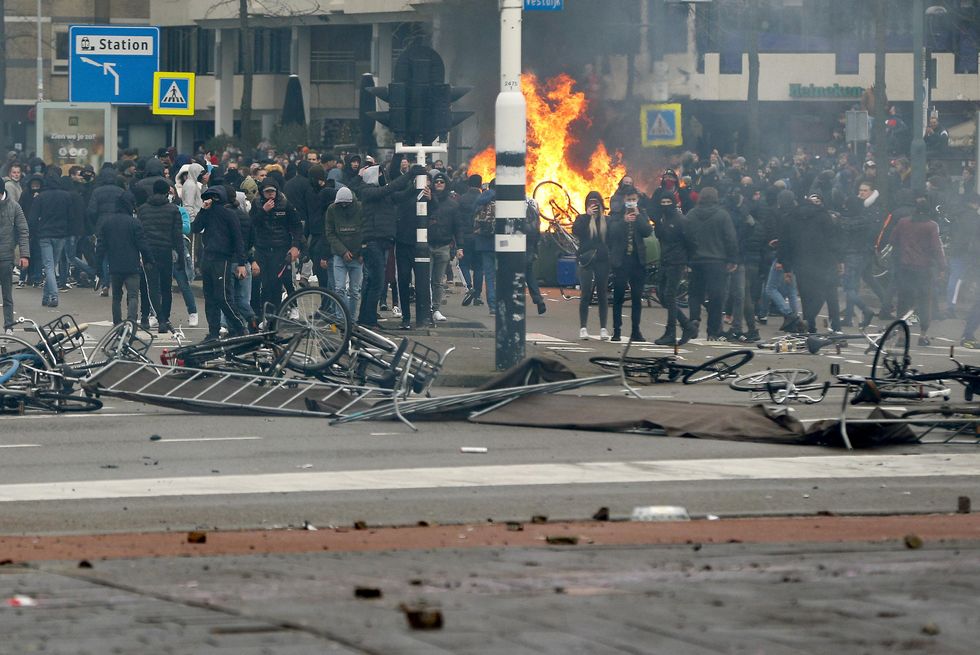 Gabrielle Debinski
Gabrielle Debinski10: Violent protests against new coronavirus restrictions have erupted in at least 10 regions in the Netherlands, which recently imposed the country's first nationwide curfew since World War Two. Protesters clashed with police and looted stores — and police say that a far-right anti-immigrant group has taken advantage of the discontent to exacerbate tensions.
1: Estonia's parliament has approved the nomination of Prime Minister Kaja Kallas of the center-right Reform party, making her the country's first-ever female head of government. Kallas takes the reins after Estonia's government was recently thrown into chaos amid a corruption scandal and will now oversee the country's post-COVID recovery.
40: Despite rolling out the most successful vaccine drive in the world, Israel's vaccination rate cannot keep pace with the spread of disease as Israelis continue to flout social distancing rules. The country will now close its airport to all international travel for at least a week to try and stop the spread of new COVID variants, with the British strain now accounting for around 40 percent of all new infections in the country.
79: After a tumultuous few years under the Trump presidency, Germans are feeling good about Joe Biden: 79 percent of them say they have confidence in Biden's approach to global affairs, compared to just 10 percent who said the same about President Trump last fall.
Follow us on Twitter and Instagram. If a friend sent you this email, you can subscribe here.
This edition of Signal was written by Gabrielle Debinski, Carlos Santamaria, and Alex Kliment. Graphic by Gabriella Turrisi. Spiritual counsel from Larry, who did a lot of interviews.